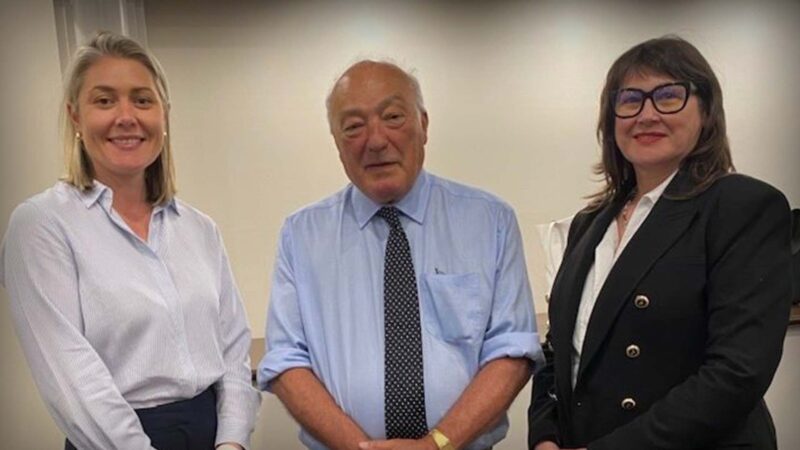A global clinical trial successfully reduced toxicity and side effects in advanced stage Hodgkin lymphoma patients by using a modified treatment regimen.
Mark Herzberg is a Professor of Clinical Haematology involved in clinical trials for patients with blood cancers, particularly lymphoma, leukaemia, and myeloma, in Australia and New Zealand.
Hodgkin lymphoma is a common cancer with varied symptoms, and treatment typically involves chemotherapy and sometimes radiation therapy.
Approximately 800 Australian patients are diagnosed with advanced stage Hodgkin lymphoma each year, with staging determined through imaging and blood tests.
Advanced stage Hodgkin lymphoma is treated with outpatient combination chemotherapy using two major regimens (ABVD and escalated BEACOPP) worldwide, with a global clinical trial involving nine cooperative groups in nine countries and 1500 patients.
The ALLG contributed 115 patients across 16 sites in Australia and New Zealand to a groundbreaking clinical trial.
A global clinical trial successfully reduced toxicity and side effects in advanced stage Hodgkin lymphoma patients by using a modified treatment regimen incorporating a new drug, Brentuximab Vedotin.
Patients experienced fewer side effects, such as anaemia, low platelet counts, peripheral neuropathy, and gonadal toxicity, while preserving fertility, with the modified BrECADD regimen in the treatment of advanced stage Hodgkin lymphoma.
Most patients with advanced stage Hodgkin lymphoma remained disease-free after three years of treatment, with a significant reduction in toxicity and shorter duration of treatment, allowing them to resume normal life and work sooner.
Australian Health Journal spoke with Professor Mark Hertzberg in his role in the ALLG HD10 Clinical Trial and as a former Chair of the Scientific Advisory Committee of the Australasian Leukaemia & Lymphoma Group (ALLG), an organisation involved in improving the treatments and lives of blood cancer patients.
You Might also like
-
Elevating Professional Standards in the Medtech and Pharmaceutical Sector
ARCS Australia Ltd, the peak body representing professionals in the MedTech and Pharmaceutical sector, this week announced a series of significant changes at its annual conference.
Dr Tim Boyle, CEO of ARCS Australia Ltd speaking to Australian Health Journal says, “These initiatives are central to strategy to build professionalism within the sector, increase capability and enhance the professional standing of its members.”
-
Representing the profession that impacts individual lives and communities
Michelle Oliver is a highly experienced Occupational Therapist with nearly two decades of leadership and clinical expertise across the mental health, homelessness, and disability sectors. She holds a Master of Occupational Therapy from the University of South Australia and is a registered practitioner with AHPRA.
-
Misinformation impacts routine vaccines
More significant changes in recent years have been health-related misinformation eroding trust in healthcare professionals, leading to people seeking alternative treatments or avoiding medical advice altogether. This can make it more difficult for healthcare professionals to provide effective treatment and care.
Recent vaccines delivered as part of the COVID-19 response, are having a consequential impact on the uptake of routine vaccines.
Australian Health Journal spoke with Dr Paul Griffin, an Infectious Diseases Physician and Microbiologist at Mater Health, and who has been involved in over 150 clinical trials in the field of infectious disease.
Paul talks about the importance of having reputable sources of information that can used to encourage people to understand what is involved in clinical trials and the roles of vaccines.



